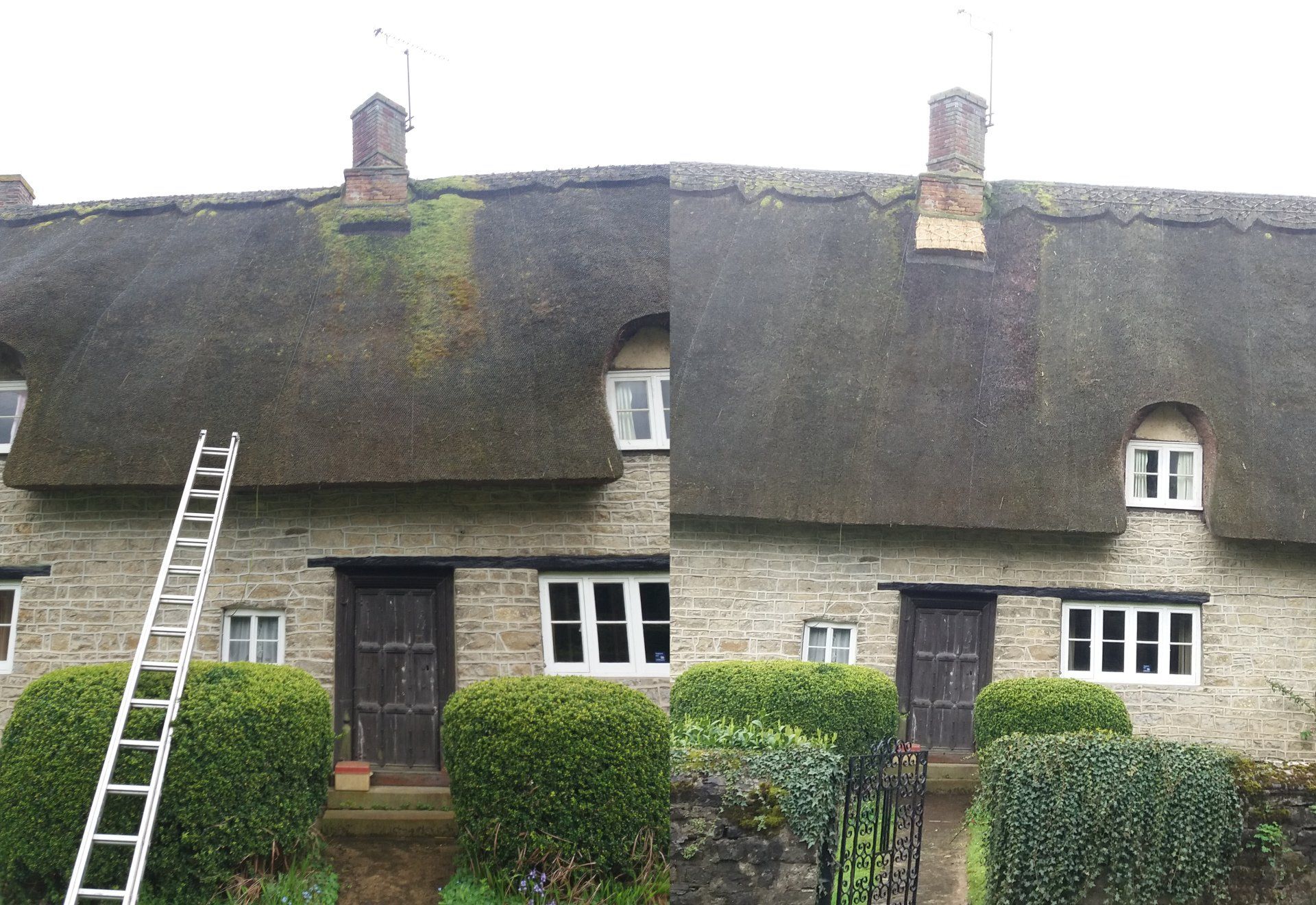FREQUENTLY ASKED QUESTIONS
How long will a thatched roof last?
How long your thatched roof lasts will depend on the material, the location of your house (overhanging trees, shade and sun exposure) and how well it has been maintained. A wheat reed roof will last on average 22-26 years but will need a new ridge in that time. A water reed roof can last up to 35 years but will the ridge replacing every 12-15 years.
How much does a new thatched roof cost?
Thatching estimates are based on the amount of material and labour required which will both depend on the size of the roof. Most thatchers will charge per 10ft x10ft square for the body of the thatch and per foot for a ridge so costs will differ for each individual roof.
What is a thatched roof made of?
The three most common materials for thatching roofs are long straw, combe wheat reed and water reed. In Scotland some roofs are thatched with heather. Long straw roofs tend to have pattern work that runs down the gables and along the eaves. Water reed thatch is a single layer fixed directly onto the rafters and is quite angular in its appearance. Combe wheat reed tends to be multiple layers and have a rounder shape to the roof. If you’re in any doubt then contact a local thatcher.
How long does it take to thatch a house?
As with pricing, the time it takes to thatch a house will depend on the size of the roof. Some large houses can take up to four months but a ridge replacement on a smaller property would take around three weeks. For larger properties it’s possible to bring in other trusted thatchers to reduce the time it takes.
How should you look after a thatched roof?
Looking after your thatched roof will help extend the life of the roof. A few things to consider when looking after your roof include:
- Areas where water runs will wear faster than the rest of the roof. This includes areas under overflow pipes, in valleys where parts of the roof meet, around windows, porches or chimneys. These areas may need attention even if the rest of your roof does not.
- It’s also a good idea to manage any overhanging trees and keep them clear of your roof.It may sound like common sense but keeping fires and BBQs away from your thatched roof is a must. Even if you think your BBQ has gone out it’s best to keep it away from your roof.


